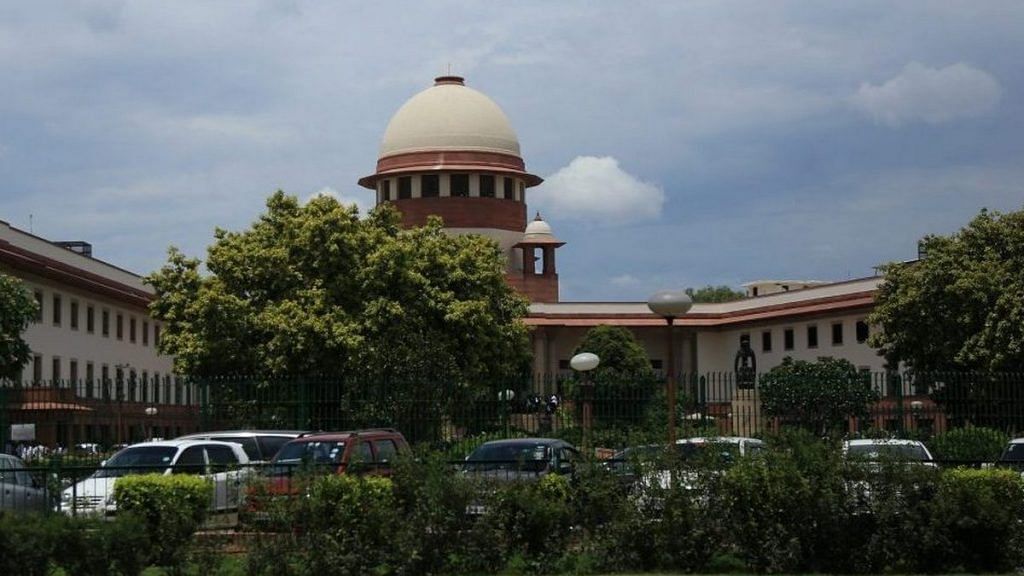Two of the most important Dalit issues have been impacted by these judgments: protection from atrocities and adequate representation.
The Supreme Court of India is regarded as an institution that ‘heroically’ defends civil liberties and acts as a protector of the marginalised social groups against oppressive social structure. It upheld individuals’ right to privacy, recognised LGBT rights, and allowed the entry of women into Sabarimala temple in the past one and half year. But three other judgments in the past year have broken the Constitution’s protective boundary that existed between the marginalised communities and structural social injustices.
It began with Justices A.K. Goel and U.U. Lalit’s ‘dilution’ of the SC/ST Prevention of Atrocities Act; then Justice R.F. Nariman’s judgment on SC/ST promotions; and now Justices U.U. Lalit and Indira Banerjee’s verdict on university faculty reservations for SC, ST and OBCs.
Two of the most important issues for Dalits have been impacted by these judgments: protection from social oppression and atrocities and adequate representation. They form the central ingredients of the constitutional promise to Dalits. This promise is a reflection of their aspirations and expectations in a constitutional democracy.
Despite facing constant hardships, Dalits and backward communities have been ‘at the forefront of owning a constitutional culture’, wrote scholar Pratap Bhanu Mehta. They see the Constitution ‘as their own’. It is their belief that governments and courts will protect the constitutional promise of representation and dignity.
Also read: Why All India Judicial Service and reservation in judiciary won’t be a reality in 2019
Dilution of atrocities?
The first judgment, delivered by a Bench of Justices A.K. Goel (now retired) and U.U. Lalit, had ‘diluted’ the provisions of the Scheduled Castes and the Scheduled Tribes (Prevention of Atrocities) Act, 1989 (SC/ST Act), thereby rendering it ineffective.
The judgment had watered down the denial of anticipatory bail — a key provision of the SC/ST Act, and further restricted the registration of FIR and possible arrests of people accused under the Act.
It led to nation-wide protests by Dalits. As a consequence, the Parliament had to bring an amendment in the SC/ST Act to undo the regressive effect of the judgment.
The challenge to the amendment is currently pending before the Supreme Court.
‘Creamy layer’ among SCs and STs
The second judgment, delivered by a Constitution Bench in the second half of 2018, was related to reservations for SCs and STs in promotions. The court, speaking through Justice R.F. Nariman, refused to refer its earlier decision in the M. Nagaraj case to a larger bench, while also introducing the concept of creamy layer in SC/ST reservation jurisprudence.
The creamy layer requirement was not present in the Nagaraj judgment, which was also delivered by a Constitution Bench. The conditions set out in Justice Nariman’s judgment make it very difficult for any government to introduce reservation in promotion policies.
Also read: Why ‘13-point roster’ is Modi government’s litmus test on university faculty reservation
Department-wise quota
The third judgment delivered last week, by a Bench of Justices U.U. Lalit and Indira Banerjee, rejected the challenge against a 2017 judgment of Allahabad High Court, which had held that teaching posts in universities will be reserved department-wise, not according to the total number of posts available at a university.
This is likely to cut down the number of teaching posts reserved for SCs, STs and OBCs across central universities heavily. Taking note of the fact—according to a recent RTI disclosure—that reserved category posts in central universities are largely vacant, the stand taken by the Supreme Court will ‘further shrink the representation of marginalised sections’ across the universities.
The expectation of marginalised groups from the Supreme Court was that if governments are negligent in implementing and furthering the structures of social justice set out in the Constitution, the top court will come to their rescue and maintain Dalits’ faith in constitutional institutions.
But successive governments have been negligent in implementing social justice legislations and reservations in government jobs. These three judgments appear to provide a kind of approval for this negligence.
And now, the Supreme Court itself appears to be contributing to the erosion of the social justice narrative.
Also read: SC okays dept-wise faculty quota: Harms university reservation or even spread of jobs?
In his article “Has the Supreme Court Been More a Friend or Foe to African Americans?”, Harvard Professor Michael Klarman has stated that the United States Supreme Court has been a regressive force on racial issues. The Supreme Court of India seems to have adopted a similar approach on social justice issues, as it has diluted reservation structure.
This is set to alienate Dalits, tribals and backward communities, as they regard these Supreme Court judgments as creating a direct threat to their concerns. This is also due to the fact that these judgments are coming from a court that has had no Dalit judge in over eight years.
The credibility of an institution such as the Supreme Court cannot flourish in a constitutional democracy if its marginalised communities do not explicitly express their trust in the institution. The court must start making reparations to regain the faith of the marginalised communities.
The author is an LLM student at Harvard Law School. He tweets at @anuragbhaskar_
